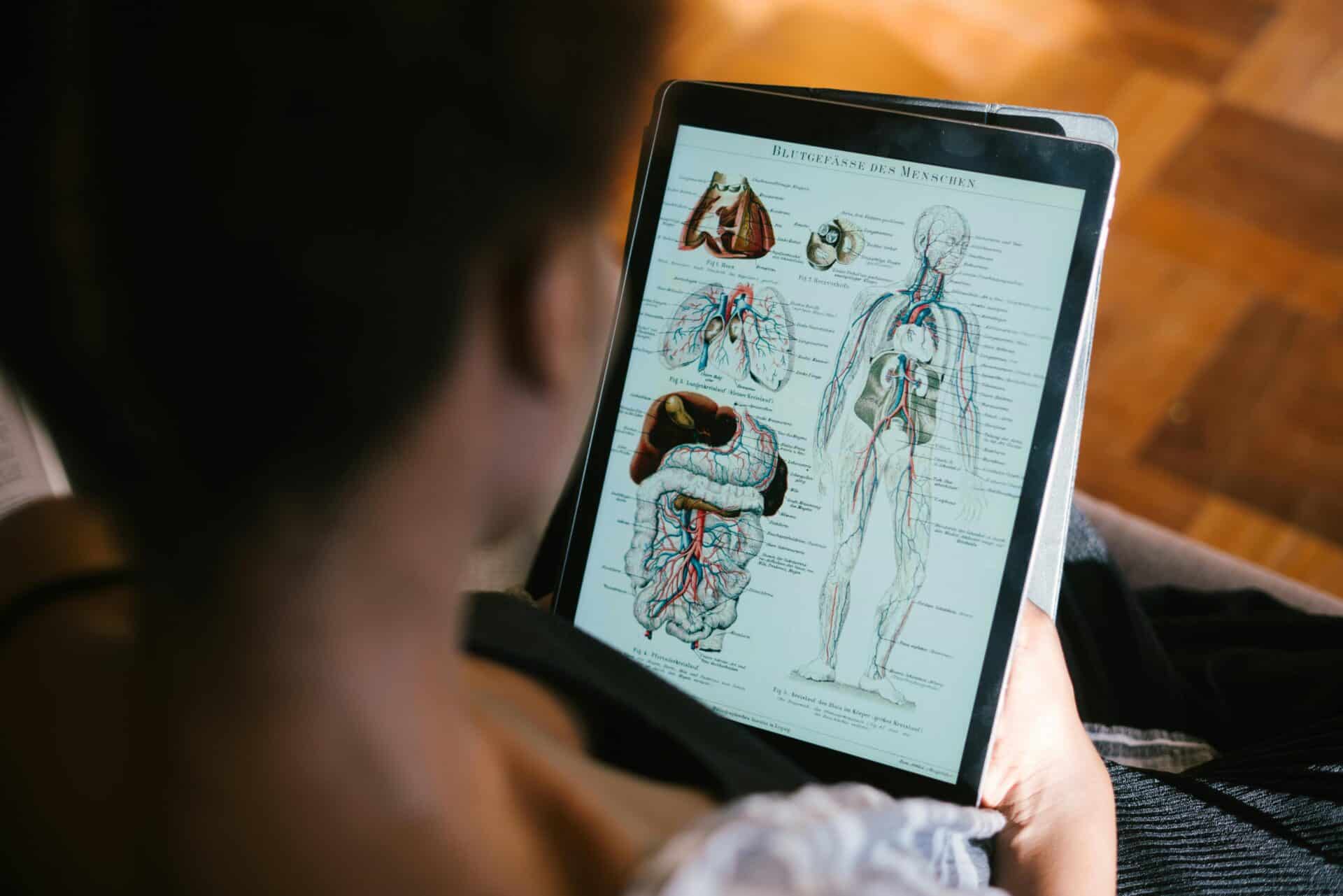The Lifesaving Journey of Organ Donation

With over 100,000 people on the national transplant waiting list, the demand for organs far exceeds the available supply. Every eight minutes, a new name is added, subjecting many patients to extended waiting periods, sometimes lasting for years. Tragically, 17 people lose their lives everyday while waiting for a life-saving organ, underscoring the urgency of the situation, where some hopeful recipients face prolonged waits, while others, regrettably, do not survive the wait at all.
In 2023, more than 46,000 transplant surgeries were performed – a clear sign of how crucial it is for people to step up and contribute to this life-saving cause. That’s why, when it comes to organ donation, understanding what organs you can donate is really important.
As a leading educational bioscience lab and service provider, MERI is dedicated to helping people make informed choices about organ and tissue donation.
It’s important to note that MERI only accepts Full Body Donations (also known as Whole Body Donations) However, someone can be an organ donor and a whole-body donor.
What Organs Can You Donate While Alive?
Living organ donation involves a living person donating one of their organs or a portion of it to be transplanted to someone in need. As a living donor, you have the unique ability to choose the recipient of your organ, expediting the organ transplant process for the intended beneficiary. While a significant number of living donations occur within families or close-knit circles of friends, you can also opt to donate to a stranger.
Organs You Can Donate as a Living Donor
As a living donor, here’s what organs you can donate:
- One kidney – With 85% of people on the transplant waiting list waiting for a kidney, it is by far the most common and crucial donation. As a living kidney donor, you can lead a normal life with a single kidney, which effectively removes waste from your body.
- A part of the liver – After donating a segment, your liver regenerates rapidly, returning almost to its original size. This regrowth process benefits both you and the recipient in a relatively short time frame.
- One lung, a part of the pancreas, or a part of the intestine – While less common compared to kidney or liver donations, these contributions are still important. These organs don’t regrow, but both the donated portion and remaining organ retain full functionality.
Although living donation is considered safe, it still carries risks similar to any major surgery. Recipients may undergo procedures ranging from minimally invasive, laparoscopic methods to more extensive surgeries. Prior to donation, potential living donors go through medical and psychological evaluations to assess their overall health and compatibility with the intended recipient. Following transplant, most living donors go on to live active, healthy lives, and witness the positive impact of their donation.
What Organs Can You Donate After Death?
Given that only about half of the U.S. population chooses to register for post-mortem organ donation, many patients are removed from the transplant waitlist annually due to declining health. By choosing to donate your organs after death, you can potentially save up to eight lives.
Vital Organs You Can Donate After Passing
Here’s what organs you can donate after you pass:
- Two Kidneys: Kidneys play a key role in filtering waste and excess fluids from the blood, maintaining electrolyte balance, and producing urine. Donating one or both kidneys can provide life-saving opportunities for recipients facing renal failure.
- Liver: The liver is a multitasking organ responsible for detoxifying the blood, producing essential proteins, and aiding in digestion. A donated liver can significantly enhance the quality of life for someone in need of a transplant.
- Two Lungs: Lungs facilitate the exchange of oxygen and carbon dioxide, crucial for maintaining proper respiratory function. Donating lungs can offer a new lease on life for individuals with respiratory diseases.
- Heart: The heart pumps blood, supplying oxygen and nutrients to the body’s tissues. Heart transplantation is a critical intervention for individuals with severe heart conditions, offering a chance for a healthier and more active life.
- Pancreas: The pancreas regulates blood sugar by producing insulin and other hormones. Donating a pancreas is vital for individuals dealing with diabetes and other pancreatic disorders.
- Intestines: The intestines aid in digestion and nutrient absorption. Donating intestines can be crucial for individuals facing intestinal failure, improving their digestive function.
- Hands and Face: While not vital for survival, donated hands and face tissues can significantly enhance the quality of life for recipients. Hand and face transplantation can restore lost function and appearance, fostering a sense of normalcy.
Each donated organ plays a unique and indispensable role in sustaining life and improving the health of recipients. The generosity of organ donors after passing provides hope and renewed opportunities for those facing life-threatening conditions, highlighting the profound impact of organ transplantation on both longevity and quality of life.
Whole Body Donation
As a lesser-known option, Whole Body Donation is a crucial aspect of medical research, aiding in educating students on surgical procedures, enhancing understanding of disease treatments, and improving patient outcomes. As a body donor, your entire body is contributed to medical science at no cost to you or your family, with minimized medical and funeral expenses. Although whole-body donation remains less known among the U.S. population, it presents a unique opportunity to simultaneously support medical research and aid patients with end organ disease. MERI only accepts Whole Body Donations.
Beyond Organs: Tissue and Other Life Saving Donations
Expanding the discussion beyond organ donation unveils additional avenues for saving lives through tissue and various other donations.
Tissue Donation: From Corneas to Heart Valves
Tissue donation extends beyond organs, encompassing various types that significantly impact medical treatments and recipients’ lives:
- Corneas: Donated corneas can restore vision for individuals with corneal damage or diseases, profoundly improving their quality of life.
- Skin: Skin donations aid in treating burn victims, providing a vital resource for grafting and promoting healing in severe burn cases.
- Bone: Donated bone tissue is instrumental in orthopedic surgeries, helping recover from bone injuries or diseases.
- Heart Valves: Heart valve donations are crucial in cardiac surgeries, addressing valve disorders and enhancing cardiovascular health.
Blood, Platelets, and Stem Cell Donations
Beyond tissues, donations of blood, platelets, and stem cells play a pivotal role in advancing medical treatments:
- Blood Donation: Regular blood donations save lives in emergency situations, surgeries, and treatments for various medical conditions. Donors can typically give blood every eight weeks.
- Platelets Donation: Platelet donations are vital for individuals with clotting disorders or undergoing cancer treatment. Donors can contribute platelets more frequently than blood, typically at two week intervals
- Stem Cell Donation: Stem cell donations are essential for treating blood-related diseases like leukemia and lymphoma. The donation process often involves extracting stem cells from the donor’s blood. While it’s possible to donate stem cells multiple times, it’s recommended not to exceed 3 times.
How to Become a Donor: The Steps Involved
In the U.S. organ donation operates under an opt-in system. This requires potential donors to actively sign up on the donor registry, and once documented, no additional authorization is needed for them to be legally recognized as an organ donor. Here’s how you can get started:
Step 1: Understand the Process
Educate yourself on the organ donation process. Understand what it means to be an organ donor, what organs you can donate, and the potential impact of your decision.
Step 2: Discuss with Family
Although registration is a personal decision, we recommend discussing your choice with family members. This ensures everyone is aware of your wishes and can support your decision.
Step 3: Register Through Your State
SIgn up as a donor through your state, which can be done online, at your local department of motor vehicle (DMV) office, or via the Health app on your iPhone. Anyone over 18 can sign up, and in some states, those aged 15-17 can also register.
Upon your death or when near death, a hospital contacts the local Organ Procurement Organization (OPO). The OPO checks your state registry to determine if you are a registered donor. If you are, this serves as legal consent for donation. It’s crucial to inform your family of your decision, as they will be notified by the OPO and guided through the process. Sharing your decision ensures your wishes can be carried out.
Note: Consider leaving a lasting legacy through full-body donations. Explore MERI’s Genesis Donation Process.
The Far-Reaching Impact of Your Donation
Organ and tissue donations have a far-reaching impact, touching the lives of countless individuals and creating a profound ripple effect across communities.
Statistics: A Testament to Impact
- Lives Saved: According to organ donation statistics, the impact of organ donation is profound; a single donor has the potential to save eight lives and positively influence more than 75 others.
- Tissue Donations: Beyond organs, tissue donations, including corneas, skin, and bone, impact a wide range of medical treatments. Tens of thousands of people benefit annually from tissue donations, regaining vision, healing from severe burns, and recovering from orthopedic procedures.
- Survival Rates: Statistically, organ transplant recipients experience significantly improved survival rates and enhanced quality of life compared to those awaiting transplantation.
Embracing the Power of Giving
The far-reaching impact of organ and tissue donations extends beyond numbers. It is embodied in the lives saved, the stories of resilience, and the deep connections within communities. Every act of donation is a testament to the potential for positive change that one person can make, leaving a lifelong legacy that echoes through the lives of recipients and their circles.
For more information about donating your body to science and to learn more about our work visit our resource page.
